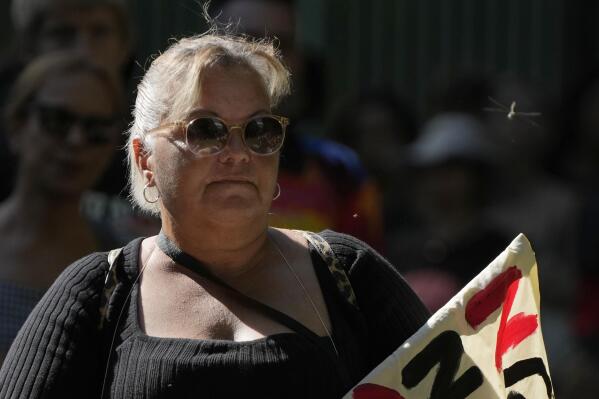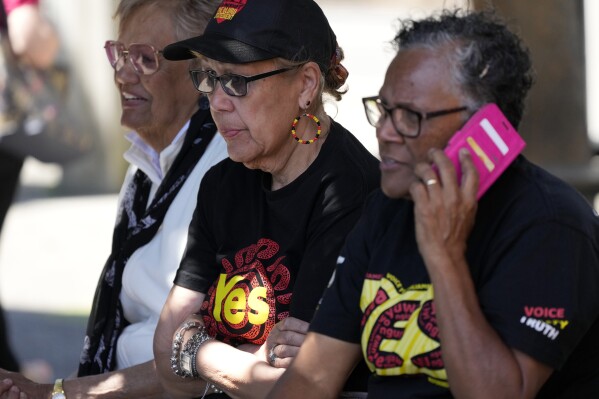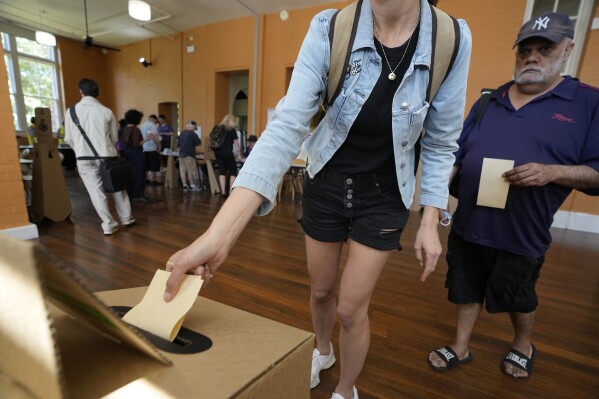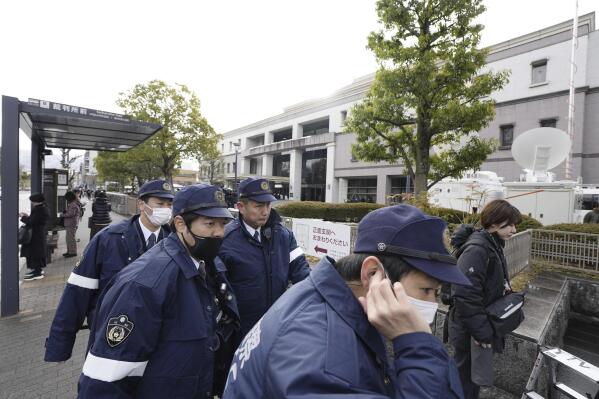2 monuments symbolizing Australia’s colonial past damaged by protesters ahead of polarizing holiday
MELBOURNE, Australia (AP) — Two monuments symbolizing Australia’s colonial past were damaged by protesters on Thursday ahead of an increasingly polarizing national holiday that marks the anniversary of British settlement.
A statue in Melbourne of British naval officer James Cook, who in 1770 charted Sydney’s coast, was sawn off at the ankles, while a Queen Victoria monument in the city’s Queen Victoria Gardens was doused in red paint.
Images posted on social media showed the body of the Cook statue lying on the ground with the words “The colony will fall” spray-painted on the stone plinth where the statue formerly stood.
Protesters doused the same statue with red paint in January 2022.



Australia Day, held each year on Jan. 26, commemorates the anniversary of British settlement in 1788. But argument rages in the country over how history should remember a fleet of 11 British ships carrying a human cargo of convicts arriving in present-day Sydney on Jan. 26, 1788.
For many Indigenous activists, Australia Day is known as “Invasion Day” as it marked the beginning of a sustained period of discrimination and dispossession of Indigenous peoples without the negotiation of a treaty. The lack of such a treaty puts Australia out of step with comparable countries including the United States, Canada and New Zealand.
“We understand and acknowledge the complex and diverse views surrounding Australia Day,” Port Phillip Council Mayor Heather Cunsolo said Thursday.
“We can’t condone, however, the vandalism of a public asset where costs will be ultimately borne by ratepayers,” she added.
The Cook statue has since been taken away and workers removed the feet from the plinth.
Victorian state premier Jacinta Allan said the government would support the local authorities to repair and reinstate the statue.
Police said they were investigating both incidents.



A referendum proposal to create an advocacy committee to offer advice to Parliament on policies that affect Indigenous people — the nation’s most disadvantaged ethnic minority — was resoundingly rejected by Australia’s voters in October last year.
Disclaimer: The copyright of this article belongs to the original author. Reposting this article is solely for the purpose of information dissemination and does not constitute any investment advice. If there is any infringement, please contact us immediately. We will make corrections or deletions as necessary. Thank you.




